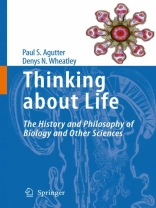Our previous book, About Life, concerned modern biology. We used our present-day understanding of cells to ‘define’ the living state, providing a basis for exploring several general-interest topics: the origin of life, extraterrestrial life, intelligence, and the possibility that humans are unique. The ideas we proposed in About Life were intended as starting-points for debate – we did not claim them as ‘truth’ – but the information on which they were based is currently accepted as ‘scientific fact’. What does that mean? What is ‘scientific fact’ and why is it accepted? What is science – and is biology like other sciences such as physics (except in subject m- ter)? The book you are now reading investigates these questions – and some related ones. Like About Life, it may particularly interest a reader who wishes to change career to biology and its related subdisciplines. In line with a recommendation by the British Association for the Advancement of Science – that the public should be given fuller information about the nature of science – we present the concepts underpinning biology and a survey of its historical and philosophical basis.
สารบัญ
What is Science?.- Culture, Technology and Knowledge.- Classical Roots.- Mediaeval Views of the World.- The Scientific Revolution.- The ‘Scientific Revolution’ in Biology.- Aristotle’s Biology.- How Different Are Organisms from Inanimate Objects?.- Cell Theory and Experimental Physiology: New Ideas in a Changing Society.- Embryos and Entelechy.- Spontaneous Generation.- The Evolution of Darwinism.- The Great Heredity Debate.- Evolutionary Theory Attains Maturity.- The Problem of Purpose.- The Scientific Status of Biology.












